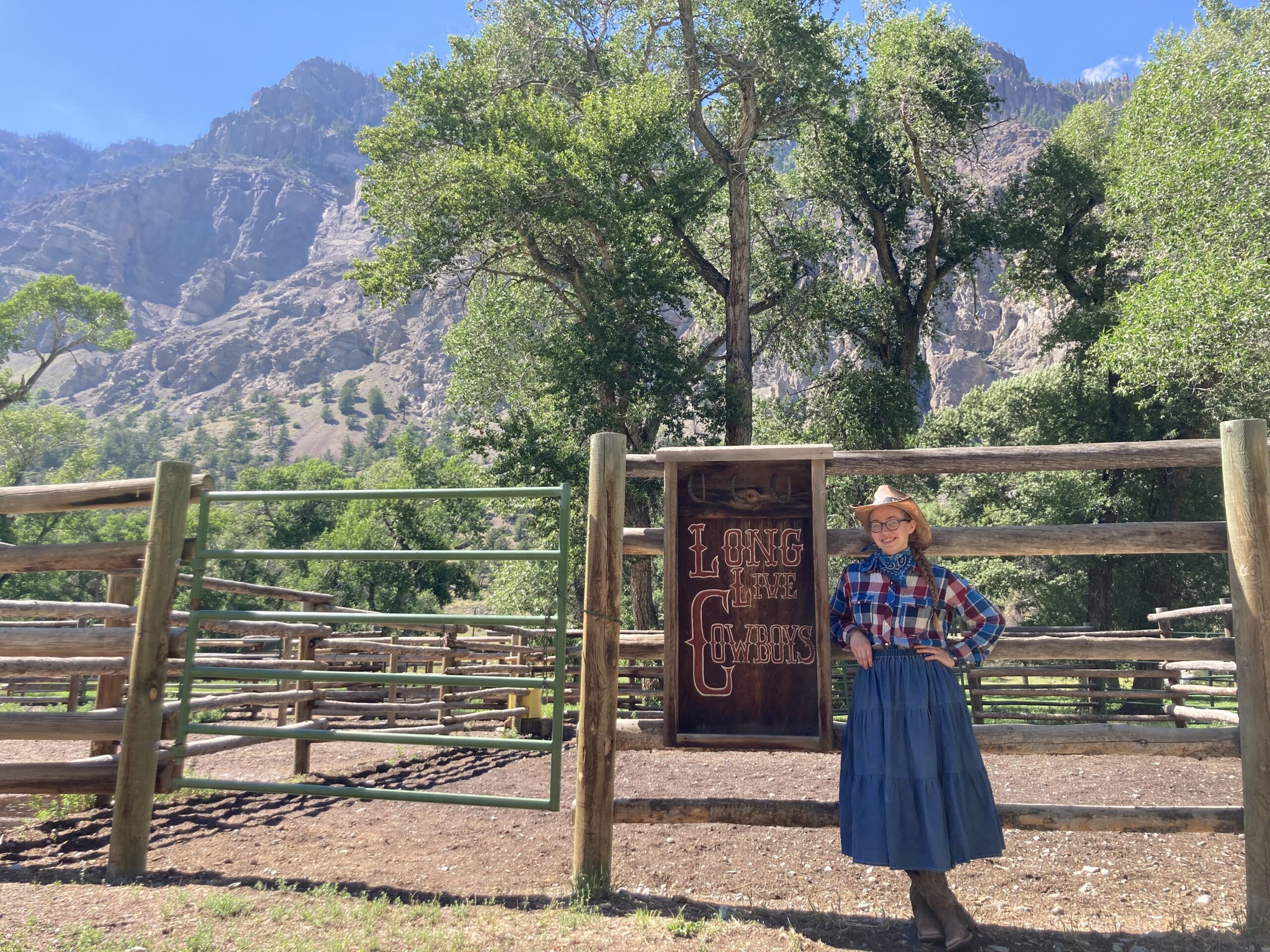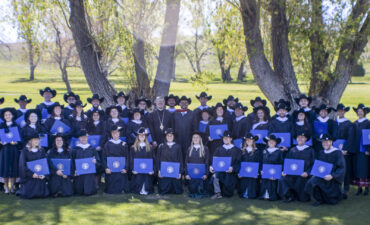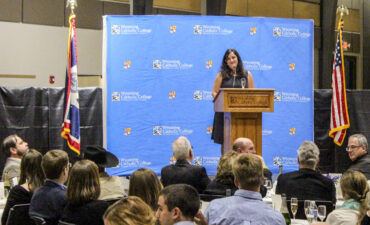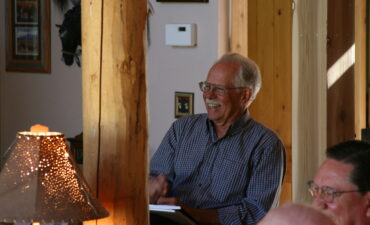“Deliberately cultivating the long-neglected seeds of femininity:” Reflections from JPII Institute Summer Fellow Nyra Ortiz (’25)
Nyra Ortiz, a junior from Penfield, NY, was recently accepted by the Pontifical John Paul II Institute for Studies on Marriage and Family as a Summer Fellow. This year’s fellowship, which will be held from May 20-25, is entitled “Gender, Technology, and Culture,” and “will engage deeply with the theological and philosophical questions raised by the emergence and seeming success of gender ideology. We will focus on the relationship between the current gender movement, modernity’s dominant scientific and technological understanding of reality, and the rejection of cultural form.” Congratulations, Miss Ortiz!
In her application essay, Nyra was asked to “discuss your intellectual interests as they relate to the topic of this fellowship.” Her thoughts, from the perspective of a student who has given up much of the very “technology” the world finds so necessary, were equal parts eloquent and insightful. With her permission, they are reproduced below.
Choosing to attend a low-tech, liberal arts, radically traditional Catholic college with a bit of mountain climbing and cowboying on the side was the most rebellious decision of my teenage years. My family, with my father and two brothers working in tech, could not understand it—why give up up your phone and secure internet access to study horsemanship and the classics in the middle of nowhere? The answer was simple: Wyoming Catholic College was the first place where I ever met other women like me.
As the only girl, with four brothers, I was inevitably raised a tomboy, with martial arts, basketball shorts, video games and all. As a teenager, however, I began to question this identity which I had adopted—or had others forced it upon me? All the answers which the twisting alleys of the internet provided proved only more detrimental in the long run, but I explored those pockets and recesses because I was likewise dissatisfied with the mainstream narrative which I had gathered by osmosis from society. Neither the freedom of gender androgyny, ambiguity, and total interchangeability promised by LGBTQ blogs nor the false dichotomy of ultra-masculine and hyper-feminine portrayed in Marvel and Barbie movies seemed right to me. Meanwhile, though I never could in good conscience assent to transgender ideology, I could understand the appeal and even sympathize with those suffering gender dysphoria—though I could never admit this at my traditional Catholic school. I had often wished I were a boy, though I never believed that I was one. After all, no one had ever told me why I should look forwards to growing into a woman; I had only ever seen masculine traits valued or praised in society, and never had I perceived genuine strength in femininity. Technology provided an easy escape, an un-incarnate world where the body behind the screen ceased to matter, and gender along with it. Though I deluded myself through much of the 2020 lockdowns, this unreality proved unsatisfactory, too.
A two-week summer camp at Wyoming Catholic in 2020 snapped me out of that stupor. Through rock climbing, horseback riding, partner dancing, and especially a four-day backpacking trip through relentless torrents of rain, trails turned mudslides, and lightning storms bearing down directly overhead, I was reminded of a reality that I should never have been able to forget: our incarnational existence as humans. In particular, the women who led us through these activities made a lasting impression on me. They were strong in skirts, feminine in the wilderness, but their virtues were not derived from comparison, or always qualified “good . . . for a girl.” Far from feeling the need to prove themselves or compete with men, they were confident in their femininity, and thus content to be complimentary to the stronger sex. Through their example, I learned that there is a certain grace and strength unique to women—and began to yearn for it myself.
Ever since, I have been deliberately cultivating the long-neglected seeds of femininity planted by God in my soul. In more concrete terms, I have developed feminine leadership traits through the Outdoor Leadership Program, and a feminine intellectual voice through writing essays and contributing to class discussions. On all-female backcountry trips, including the 21-day freshman expedition and a desert retreat, as well as in dorm life, I have come to appreciate the unfamiliar dynamic of living in a sisterhood. In seminars, I have grappled with authors ranging from the ancients to the Church fathers, medievals to moderns, including heavy-hitters like Milton, Solzhenitsyn, Aristophanes, Shakespeare, as well as the varied opinions of my classmates, on the strengths, weaknesses, relationship, and roles of men and women. Such conversations frequently overflow out of the classrooms; serious topics of discussion at the lunch table or in the dorm laundry room have included: the pros and cons of arranged marriages; the Church fathers’ teachings regarding women . . . wearing makeup; whether women are “overreacting” or men are actually too stoic; how and why men and women respectively ought to dress in accord with their gender; what a feminine leadership style looks like—and whether women should have leadership roles at all on co-ed expeditions. The fact that conversations about often inflammatory topics are not only civil, but fruitful here suggests that they occur on a unique stage, apparently impervious to the controversy that renders discussion either pre-determined or profitless elsewhere in modern society.
Yet our community is a refreshing oasis in more ways than one. Bounded by a “strict” technology policy, which requires all students to turn in their phones during the school year, limits the use of laptops and media players, and restricts wi-fi in many campus buildings, this community may seem luddite or simply ludicrous when judged by modern sensibilities. From the inside, however, I assure you that these rules are essential to the character of our community (and education, too); they make it the haven that it is, a retreat from the hectic demands of a cyberage-paced technocracy that would have sounded like science fiction a century ago. Here, men can be men—while also emotional, fashionable, caring, and great at baking bread—and women can be women—yet also confident, courageous, outspoken, and capable of wrangling a half-ton horse. The men and women who come here are crazy enough to embrace our incarnate reality every day, whether that means walking to class when it’s –40 degrees, or laughing through broken ribs, for they have rejected androgyny and technology as “legitimate” escapes. Live this way long enough, and these options begin to seem more restrictive than liberating.
While I confess my low-tech bent and have become satisfied with my place as a woman, the goal of this community is neither to cultivate suspicion and fear of technology nor enforce inflexible gender roles. Throughout my education here, I have been frequently nudged, encouraged, cornered, and forced to confront my own biases regarding gender and technology. I would personally like to aim for a moderate use of technology and a reasoned understanding of gender, by which I will be able to navigate, converse, and engage with the modern world on its own terms, without compromising my own beliefs and values. In brief, I would like to develop a common language, to bridge the gap between my luddite friends and my tech-savvy brothers, between suffering transgender kids and uncompromising traditionalists. It would be a pleasure to pursue these and further questions at the John Paul II Institute Summer Fellowship in conversation with like-minded peers and excellent guidance. Thank you for your consideration.






